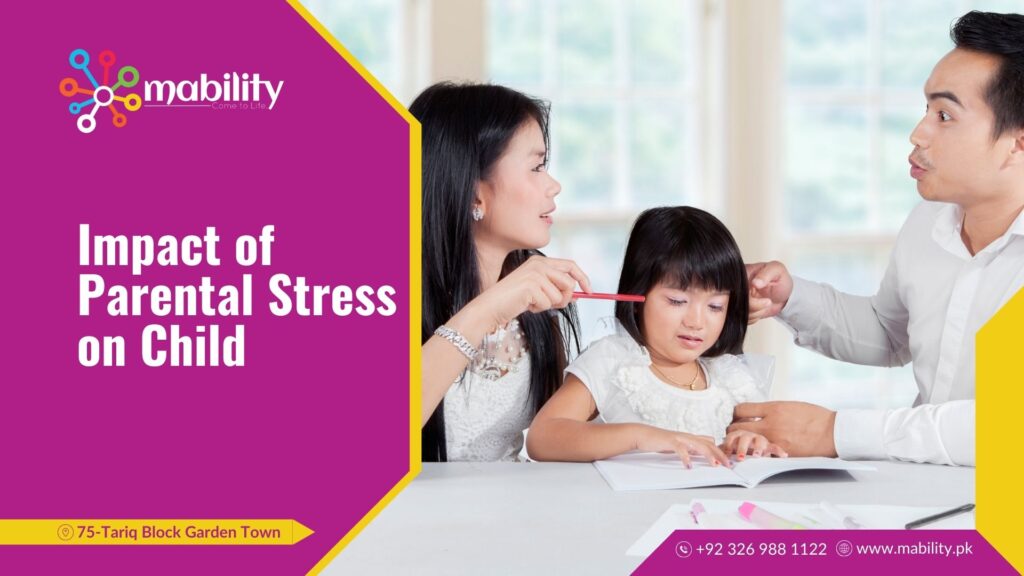
The Impact of Parental Stress on Child
The impact of parental stress on a child can be significant and multifaceted, influencing various aspects of their development including emotional, cognitive, and social dimensions. Here’s a detailed explanation of how parental stress can affect a child:
Emotional Development:
Children are highly sensitive to the emotional states of their parents. When parents experience stress, children can “catch” these emotions, leading to increased anxiety, fear, or sadness in the child.
Parents serve as primary role models for their children. When children observe their parents coping with stress in unhealthy ways (such as yelling, withdrawing, or engaging in substance abuse), they may adopt similar maladaptive coping strategies
Chronic parental stress can interfere with the formation of secure attachments between parent and child. This can lead to difficulties in emotional regulation, lower self-esteem, and a heightened sense of insecurity in the child
Cognitive Development:
Parental stress can disrupt a child’s ability to concentrate and focus. Constant exposure to stressed or distracted parents may impede a child’s capacity to engage in learning activities, leading to academic difficulties.
High levels of stress in the home environment can impair a child’s executive functioning skills, such as problem-solving, decision-making, and impulse control. This can have long-term consequences for academic and occupational success.
Also Read: Dyslexia: Learning Disability
Social Development:
Parental stress can strain family dynamics, leading to increased conflict and tension within the household. Children may internalize these conflicts or exhibit behavioral problems such as aggression or withdrawal, impacting their ability to form healthy relationships with peers and authority figures.
Children of stressed parents may have fewer opportunities to develop social skills through positive interactions and experiences. This can hinder their ability to communicate effectively, resolve conflicts, and navigate social situations, potentially leading to social isolation or rejection by peers.
Physical Health:
Chronic exposure to parental stress can contribute to the child’s physical health problems, such as weakened immune function, gastrointestinal issues, and increased susceptibility to illnesses.
Parents under stress may struggle to maintain healthy lifestyle habits for themselves and their children, such as nutritious diet, regular exercise, and sufficient sleep, which are crucial for overall well-being.
LONG-TERM OUTCOMES:
Prolonged exposure to parental stress during childhood is associated with an increased risk of developing psychological disorders such as anxiety, depression, and post-traumatic stress disorder (PTSD) later in life.
Children who grow up in chronically stressful environments may be more likely to experience stress as adults and exhibit similar parenting behaviors, perpetuating the cycle of stress across generations.
In summary, parental stress can have profound and enduring effects on a child’s emotional, cognitive, social, and physical development. Addressing parental stress through effective coping strategies, social support, and professional interventions is essential for promoting positive outcomes for both parents and children.
Also Read: What is Play Therapy
